DeGroote welcomes faculty driving innovation across business disciplines
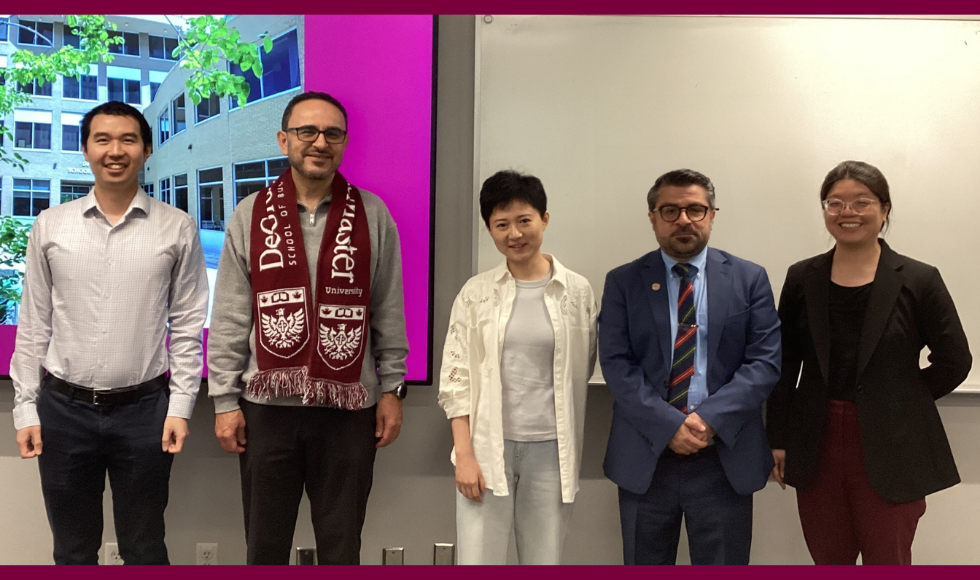
From left to right: Chris Ling, Assistant Professor of Marketing; Khaled Hassanein, Dean of the DeGroote School of Business; Yao Yao, Assistant Professor of Human Resources and Management; Manaf Zargoush, Associate Dean of Faculty Affairs and Accreditation; Anita Boey, Assistant Professor of Human Resources and Management. Absent: Karleen Dudeck, Assistant Professor of Strategic Management.
At DeGroote, the past few years have marked an exceptional period of rigorous and strategic faculty hiring, reflecting our commitment to building an outstanding academic community. As a research-intensive school, we are proud of our high-impact scholarship; however, we also place equal emphasis on teaching excellence. Experiential learning remains central to this mission, ensuring that our students are not only exposed to cutting-edge research but also gain the practical skills to address complex, real-world challenges. This year’s faculty additions re-emphasize this vision, bringing expertise across human resource management, organizational behavior, marketing and consumer behavior, leadership development and interdisciplinary intersections of business, science and technology.
The breadth of this expertise reflects our deep interdisciplinary approach to both research and teaching. By connecting research excellence with experiential pedagogy across various disciplines, our new colleagues will help the school prepare students to think critically across fields, develop innovative solutions and make meaningful contributions to society.
This mix of rigorous research and engaged teaching continues to define DeGroote’s role in shaping leaders equipped for the demands of today’s rapidly evolving global environment.
We are pleased to welcome the following faculty members to the DeGroote School of Business: Anita Boey (Human Resources and Management), Karleen Dudeck (Strategic Management), Chris Ling (Marketing) and Yao Yao (Human Resources and Management).
Get to know our latest faculty members:
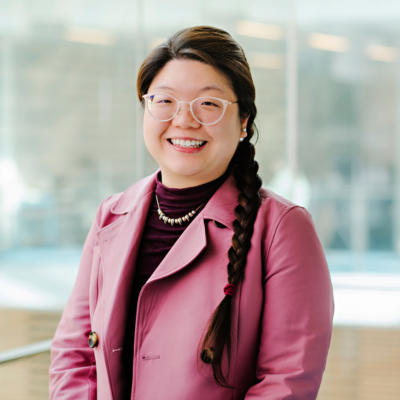 Anita Boey
Anita Boey
Assistant Professor, Human Resources and Management
What attracted you to the DeGroote School of Business and McMaster University?
I was drawn to DeGroote’s reputation for blending academic rigor with authentic application, and to McMaster’s collaborative, student-focused culture. The school’s emphasis on innovation, experiential learning and community impact aligns perfectly with my values as an educator.
What excites you most about working here?
I’m most excited about the opportunity to work with bright, motivated students and colleagues who are passionate about shaping the future of work and business. The energy here is contagious! There’s a shared commitment to curiosity, inclusivity and positive change that makes every day meaningful.
What is your primary area of expertise?
My primary expertise lies in professional skills development, diversity and inclusion in the workplace, and knowledge sharing within organizational settings. I bring together my background in education, human resources and my life experience of having lived in seven countries (Canada, U.S.A., Singapore, Malaysia, Australia, Finland and Sweden), to help learners build competencies they can apply immediately in their careers.
What motivated you to pursue this field of study?
Having experience in both education and business, I saw how critical it is to prepare people not just with technical knowledge, but with the interpersonal and problem-solving skills to thrive in complex, diverse environments. In HR we often say to bring the human into “human resources”. That inspired me to focus on equipping students and professionals with tools to navigate those challenges effectively.
Are there any specific topics or trends you’re fascinated by in your field of business?
I’m fascinated by how organizations are rethinking learning and leadership through the lens of inclusivity and empathy, especially as work becomes more global and technology driven. I’m also intrigued by the evolving intersection between AI, workplace culture and human potential.
Describe your teaching style – how do you engage students?
My teaching style is interactive, collaborative and highly practical. I design experiential learning activities that bring concepts to life, like case studies, role-playing, debates and simulations. Students are active participants in their own learning. I often tell students that we are in class not to cover concepts, but to discover them together. I aim to create a psychologically safe environment where every voice is valued, and curiosity is encouraged.
Tell us one surprising or incredible fact about yourself.
I combine my passions for teaching and creativity as a sewing instructor at a nonprofit arts organization in Toronto, where I taught hundreds of people, from absolute beginners to experienced makers, how to design and create garments using sustainable materials. Most of these materials are sourced from the Textile Museum of Canada’s textile reuse program, where I am a volunteer. It’s a constant reminder that learning is most powerful when it’s hands-on and joyful, and we can create wearable art out of textile waste!
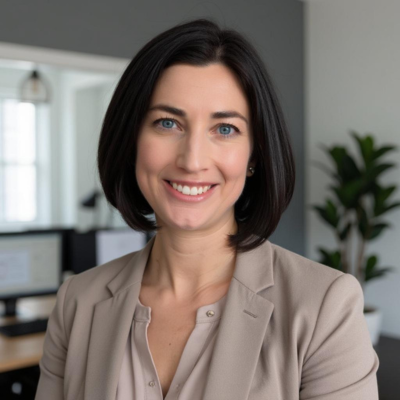 Karleen Dudeck
Karleen Dudeck
Assistant Professor, Strategic Management
What attracted you to the DeGroote School of Business and McMaster University?
I was drawn to DeGroote by its commitment to interdisciplinary excellence and the school’s values of collaboration, community, inclusivity, innovation, integrity, which align with my personal values. I feel fortunate to have the opportunity to work with an organization that shares my personal values.
What excites you most about working here?
I’m looking forward to having the opportunity to bridge theory and practice, engaging students through case-based and community-engaged learning that I’m passionate about. I’m energized by DeGroote’s embrace of experiential, student-centered approaches—exemplified through the GR0 program—because they empower students to tackle real-world challenges with empathy and creativity.
What is your primary area of expertise?
My core expertise lies in strategic management, with particular strengths in entrepreneurial leadership, small business growth and community engaged learning methods. As a consultant, I’ve supported start-ups and SMEs in strategic planning, digital marketing, operational integration and leadership development. I’m passionate about helping organizations—and now students—navigate complex environments with practical, evidence-based leadership strategies.
What motivated you to pursue this field of study?
My path started in engineering and materials science, where I developed a strong analytical foundation. Pairing that technical rigour with an MBA enabled me to apply evidence-based, strategic tools to business challenges. I was motivated to bring analytical precision and human-centered perspectives together—to solve problems not just for theoretical insight but for real community impact. That blend of disciplines continues to motivate my academic and entrepreneurial journey.
Are there any specific topics or trends you’re fascinated by in your field of business?
I’m particularly passionate about:
- Community-engaged leadership: how experiential formats foster ethical, empathetic leaders able to navigate diverse stakeholder contexts.
- Digital transformation in SMEs, especially how small businesses can adopt agile, resource-sensitive strategies.
- More broadly, how interdisciplinary, experiential, strategic teaching can reshape how future business leaders learn, collaborate and create impact.
Describe your teaching style – how do you engage students?
My teaching centers on case-based, interactive and community-engaged learning that offers students the opportunity to tackle real organizational challenges in partnership with local community or business partners. I blend reflective tools such as peer evaluations and leadership surveys into learning, while incorporating technology and collaborative tools to maintain a dynamic, inclusive classroom.
Tell us one surprising or incredible fact about yourself.
While my academic and consulting trajectory might suggest a purely business background, I actually started out doing advanced materials science research during my PhD at Oxford—studying the atomic structures of novel materials with picometre precision using high resolution electron microscopy techniques.
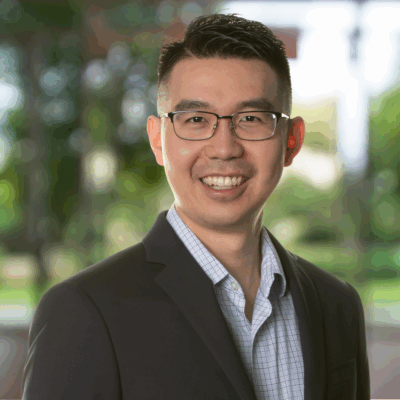 Chris Ling
Chris Ling
Assistant Professor, Marketing
What attracted you to the DeGroote School of Business and McMaster University?
What drew me to the DeGroote School of Business and McMaster University was the strong sense of collegiality and community. From the moment I arrived, I was struck by how friendly, supportive and welcoming my colleagues were. That atmosphere of collaboration and mutual respect is something I deeply value. I was also impressed by the enthusiasm and engagement of the student body, which makes teaching here rewarding. Getting involved with initiatives like MARS Apprentice has been especially fulfilling. It’s inspiring to see students apply their knowledge in real-world contexts with such creativity and drive. On top of that, the presence of strong researchers across the faculty creates an intellectually stimulating environment that aligns perfectly with my academic goals. Altogether, McMaster offers everything I was looking for in an institution, a place to teach, learn and grow.
What excites you most about working here?
What excites me most about working at DeGroote is the opportunity to contribute to a dynamic and forward-thinking academic environment. I’m energized by the chance to collaborate with colleagues who are not only accomplished researchers but also deeply committed to teaching and mentorship. The culture here encourages innovation in the classroom and supports meaningful engagement with students, which allows me to bring fresh ideas into my teaching. I’m particularly excited about the potential to shape experiential learning opportunities and help students connect theory to practice in impactful ways.
What is your primary area of expertise?
My primary area of expertise is marketing, with a specialization in consumer psychology. I hold a PhD in marketing, and my research is grounded in understanding how individuals think, feel and behave as consumers, not just in the marketplace, but across all aspects of acquiring, using and experiencing products and services. Consumer psychology seeks to uncover the underlying psychological mechanisms that shape our decisions, preferences and interactions with brands and products. I approach these questions by conducting experiments with human participants, which allows me to explore consumer behaviour in a rigorous and insightful way.
What motivated you to pursue this field of study?
My interest in marketing began during an introductory marketing class, where one of our assignments was to observe consumer behaviour in a mall. I spent hours watching people interact with products, how they gravitated toward certain items, picked them up, put them down, and responded to subtle cues like mannequin displays. I was captivated by the patterns and decisions unfolding before me. Why did so many people reach for the same pair of jeans? What made the shirt on the mannequin more appealing than others on the rack? That afternoon sparked a deep curiosity about how we, as consumers, make choices, not just in purchasing, but in how we acquire, use and experience products and services. From that moment on, I was determined to explore these questions further, which ultimately led me to pursue a PhD in Marketing with a focus on consumer psychology.
Are there any specific topics or trends you’re fascinated by in your field of business?
I’m particularly fascinated by the psychological factors that shape consumer decision-making. Much of my research focuses on self-control, how consumers manage their impulses, and what leads to moments of self-control failure. I’m also deeply interested in social influence, especially how our environments and the people around us subtly (or not so subtly) affect our consumption choices. More recently, I’ve been fascinated by how emerging technologies, especially artificial intelligence, are reshaping consumer perceptions and behaviors. As AI becomes more integrated into everyday life, understanding how consumers interact with and respond to these technologies has become an exciting and important area of study.
Describe your teaching style – how do you engage students?
I would describe my teaching style as highly interactive and narrative driven. I believe students learn best when they’re actively engaged, so I use storytelling to bring marketing concepts to life and make them relatable. I also place a strong emphasis on participation, encouraging students to ask questions, share ideas, and apply what they’re learning through hands-on activities and real-world projects. Whether it’s a live demonstration or a semester-long simulation, I aim to create experiences that spark curiosity and deepen understanding.
Tell us one surprising or incredible fact about yourself.
Outside of academia, I’m a lifelong musician. I’ve reached Grade 10 in piano through the Royal Conservatory of Music and also play guitar. In high school, I played electric guitar in rock bands, though these days I mostly stick to acoustic. My guitar of choice is a Taylor, which had long been a dream instrument for me, and I’m thrilled to now play on one. Music has always been a creative outlet, and I find it complements my work in marketing by encouraging rhythm, storytelling and emotional connection.
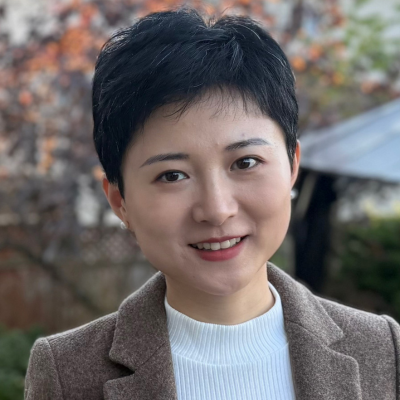 Yao Yao
Yao Yao
Assistant Professor, Human Resources and Management
What attracted you to the DeGroote School of Business and McMaster University?
I was really drawn to DeGroote’s mix of perspectives, particularly in the Human Resources and Management area. There’s such a strong balance between micro and macro approaches here, and I felt it was the right place to grow my research on the digital transformation of work.
What excites you most about working here?
I’m most excited about the people. I can’t wait to collaborate with colleagues who share my interests in gig work and digital transformation, and to learn from their different approaches. I’m also looking forward to working with students. Having known about McMaster’s strong undergraduate and PhD student communities for a long time, I feel especially excited to be part of them.
What is your primary area of expertise?
My expertise is in exploring how technology is transforming the world of work. I study things like online gig platforms, HR analytics and AI, and how these forces are reshaping not only jobs but also professions and the relationships between workers, employers and organizations.
What motivated you to pursue this field of study?
I’ve always been fascinated by the human side of big changes in technology and organizations. Early on, I noticed how digital tools promised flexibility and new opportunities, but also created challenges around autonomy, identity and fairness. That tension made me want to dig deeper and help people navigate the future of work in a thoughtful way.
Are there any specific topics or trends you’re fascinated by in your field of business?
Absolutely! At the moment, I’m especially interested in three things: how online platforms are changing professional work, how HR analytics and AI are reshaping the HR profession and how digital worker communities—from casual online groups to unions—are finding new ways to push for change.
Describe your teaching style – how do you engage students?
My teaching style is interactive and practical. I like to connect big ideas to real-world issues and bring in current topics like AI in HRM or the gig economy. I also use a lot of peer discussion and hands-on activities so students can learn from each other. My goal is always to make the classroom feel inclusive, engaging and connected to the challenges students will face beyond university.
Tell us one surprising or incredible fact about yourself.
Although I study digitalization and spend much of my time thinking about technology, I’m actually a big fan of old-fashioned journaling. I use a bullet journal with pens and notebooks to organize my work and life—it keeps me grounded and creative in a way that digital tools can’t quite replace.


